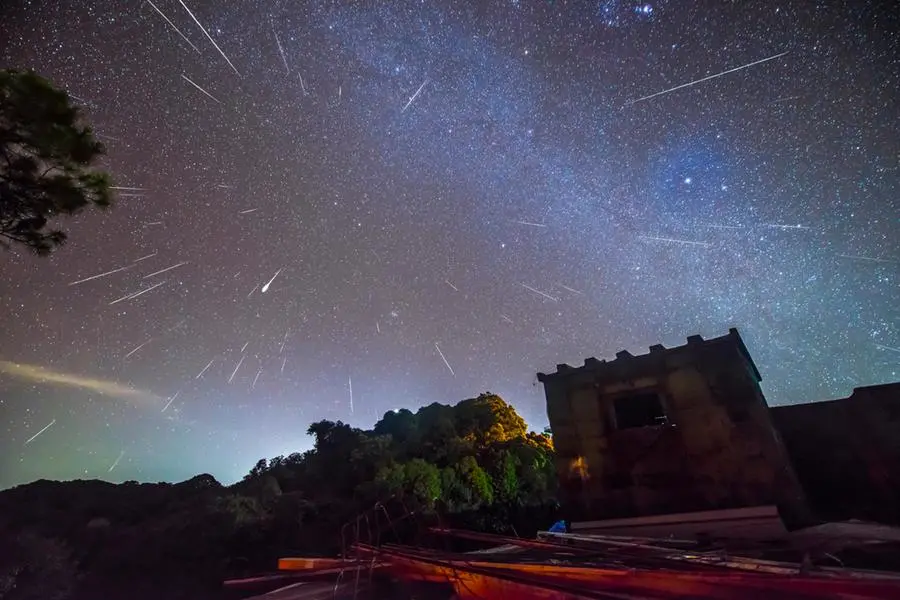PHOTO
People around the world and in the UAE are gearing up for a huge celestial event in the night sky Monday night into Tuesday morning.
Named Tau Herculids meteor, this shower could light up the sky or could be a complete bust.
The event has the potential to be a “meteor storm” of 1,000 shooting stars per hour. It’s said this happens when the Earth passes through a large amount of space rocks.
Experts explain this takes place as the Earth passes through debris from Comet 73P/Schwassmann-Wachmann 3.
Hasan Al Hariri, CEO, Dubai Astronomy Group and Director Al Thuraya Astronomy Center, said: “This news came from the Nasa Marshall space center. This happens when the comet is fragmented. Our planet is expected to go inside the debris of that comet…the tail and the leftovers from that comet. So, we are going into the debris area. Scientists are expecting a lot of falling debris on Monday till Tuesday morning. Europeans and Americans will get a better view of this. For us, visually, it may not be that great an event in the UAE. But we’ll definitely be able to view this meteor shower. Scientists are anticipating the number of debris falling on the ground will be intense. That’s why it is called a meteor storm.”
“When Meteor storm happened in 1999….the Leonid shower was beautiful. A very dense cloud containing this material hovered around the Earth’s atmosphere. So, it looked like shooting starts everywhere and the frequency was really high. The number of meteors falling per hour sometimes could go into thousands. This phenomenon is unique and happens rarely. It’s been recorded since ancient times. So, it’s natural that people feel excited. Sometimes, people even feel scared that the sky is falling. This has also been recorded by many people in their paintings,” he added.
Scientists have explained that could also fizzle out completely. One NASA scientist called it an "all or nothing event."
Hariri further explains, “In 2014 we were also told about the Cumulus meteor shower and thought it would be intense. But it wasn’t intense. We were in the desert, and we were expecting to see thousands of meteors. But we could only see four or five. So, it’s not always assured but there is a possibility it may be intense. These are faint things, and we cannot observe them without our telescopes.”
Shedding light on the favourable time for sky viewing, Hariri avers, “The best time to observe it from Dubai or Middle East will be after 1:00am till Tuesday morning. This is the time when the Earth will be facing the debris (side) and will be observing the meteor falling from the Eastern direction. The peak will be tonight. But in the UAE, it will be around 4pm. The Sun will be high in the sky that time so it will not be visible very well from here.”





















